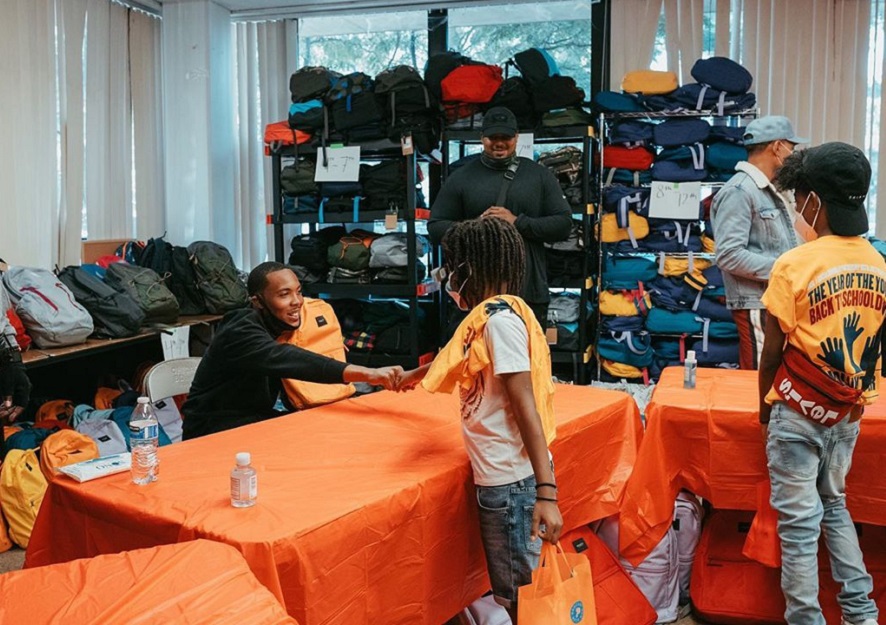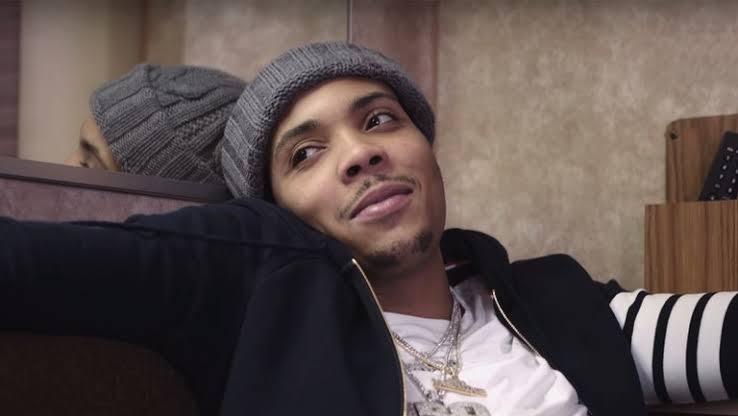Chicago rapper G Herbo is giving back to his community and also contributing in his very own special way towards achieving a collective social goal; of keeping kids away from the streets and the violence the city is notoriously known for.
Adding to his growing list of philanthropic endeavors in his hometown, HotNewHipHop reports the PTSDrapper purchased his former elementary school; with the goal of converting it into a community development center.
 Though the Overton Elementary School was closed down in 2013, G Herbo – born Herbert Wright; thought it right to claim ownership of the property for the benefit of the kids in the neighborhood. According to the Chicago Sun-Times, the 24-year-old will transform his former school into a multimedia center; that would have producers, rappers, and others coming in to mentor the youth in the vicinity.
Though the Overton Elementary School was closed down in 2013, G Herbo – born Herbert Wright; thought it right to claim ownership of the property for the benefit of the kids in the neighborhood. According to the Chicago Sun-Times, the 24-year-old will transform his former school into a multimedia center; that would have producers, rappers, and others coming in to mentor the youth in the vicinity.
“This is just about being able to lead by example for the next generation,” G Herbo told the news outlet. “We’re really just trying to change the narrative and lead by example; and show the next generation that they can do what we’re doing even greater. We’re not saying we’re going to see drastic change tomorrow, but if we keep this up, there’s limitless opportunities and it’s limitless where we can go.”
G Herbo
Over the weekend, G Herbo, alongside fellow Chicago rappers Chance the Rapper, Vic Mensa and Joey Purple; co-sponsored the Year of the Youth peace walk and back-to-school event.
Together with neighborhood residents, the group walked through the Bronzeville neighborhood; and ended up on the grounds of the Overton Elementary School where they gave out over 2,000 backpacks that were filled with school supplies; the Chicago Sun-Times reports. Tents for free COVID-19 and HIV testing were also set up, with a voter registration spot made readily available.
“The city doesn’t really fund or resource our communities and our schools, and so many schools are shut down; it kind of comes onto us to do the things the community needs,” Vic Mensa, who is of Ghanaian descent, said about their initiative.
“And it’s like what we’ve been going through, all of this s— surrounding police brutality and lack of accountability; I talked to the mayor one time, and she was like; ‘I don’t want to talk about police, this is about public safety,’ so I start to look into public safety a bit and the things that really make a community safe, statistically, are education, employment [and] access to affordable housing.”

